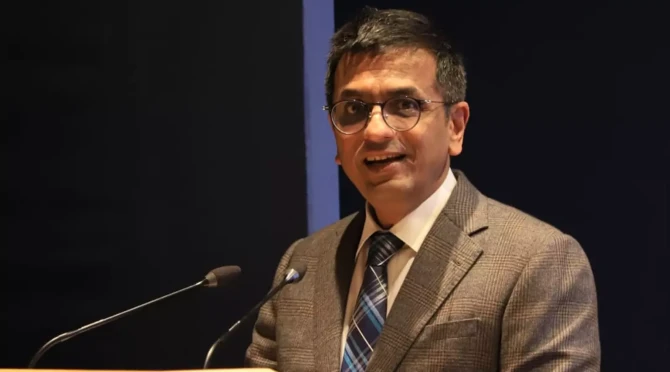
At the ninth National Annual Stakeholders Consultation on Child Protection, Chief Justice of India DY Chandrachud emphasized the need for a justice system that recognizes and addresses the compounded vulnerabilities faced by children with disabilities.
He highlighted that the challenges extend beyond physical accessibility, as these children confront deep-rooted societal biases, stereotypes, and misconceptions.
“We must ensure that the justice system, from the police stations to the courtrooms, understands and responds to the compounded vulnerabilities of these children,” he stated, advocating for restorative justice approaches. He noted that the Juvenile Justice Act (JJ Act) provides various rehabilitation measures, which should be adapted to meet the specialized needs of children with disabilities.
The two-day event, organized by the Juvenile Justice Committee of the Supreme Court in collaboration with UNICEF India, featured special addresses from Union Minister for Women and Child Development Annpurna Devi and Justice BV Nagarathna, chairperson of the committee. Cynthia McCaffrey, UNICEF’s country representative, provided introductory remarks.
CJI Chandrachud further elaborated on the concept of intersectionality, stressing that disability often overlaps with other marginalized identities, such as gender, caste, and socio-economic status. This intersectionality amplifies the discrimination faced by these children.
“For children with disabilities, these compounded vulnerabilities can have devastating effects,” he warned, urging the state to provide additional safeguards to address their unique challenges.
Reflecting on his personal experiences as a foster parent to two daughters with special needs, CJI Chandrachud shared insights into the financial and emotional burdens associated with caregiving. He expressed a heartfelt commitment to creating a more inclusive society where every child is cherished and protected.
“This year’s theme holds a special place in my heart… They have transformed not only how I see the world but also how I engage with it,” he said.
Addressing the traditional neglect of caregiving as a societal responsibility, he remarked that the unique needs of persons with disabilities are often treated as private issues, rather than a collective concern. He called for social institutions to better support families in meeting these needs.
During the event, the CJI, alongside Union Minister Devi and Justice Nagarathna, launched a “Handbook on Persons with Disabilities.” This resource aims to educate the legal community and society at large about inclusive terminology and practices.
“Engaging with stereotypes and biases is crucial… In line with our commitment to accessibility, the ‘Handbook’ will also be released in Braille and as an audiobook, ensuring that it is available to all,” he announced.
Through these initiatives, CJI Chandrachud reinforced the importance of protecting and empowering children with disabilities within the justice system and society.




